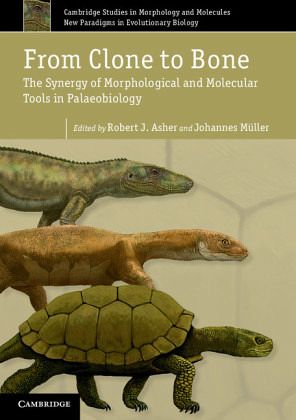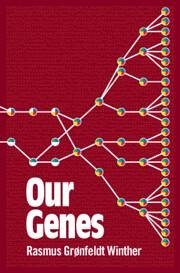Nicht lieferbar

From Clone to Bone
The Synergy of Morphological and Molecular Tools in Palaeobiology
Herausgegeben von Asher, Robert J.; Müller, Johannes
Versandkostenfrei!
Nicht lieferbar
Since the 1980s, a renewed understanding of molecular development has afforded an unprecedented level of knowledge of the mechanisms by which phenotype in animals and plants has evolved. In this volume, top scientists in these fields provide perspectives on how molecular data in biology help to elucidate key questions in estimating paleontological divergence and in understanding the mechanisms behind phenotypic evolution. Paleobiological questions such as genome size, digit homologies, genetic control cascades behind phenotype, estimates of vertebrate divergence dates, and rates of morphologic...
Since the 1980s, a renewed understanding of molecular development has afforded an unprecedented level of knowledge of the mechanisms by which phenotype in animals and plants has evolved. In this volume, top scientists in these fields provide perspectives on how molecular data in biology help to elucidate key questions in estimating paleontological divergence and in understanding the mechanisms behind phenotypic evolution. Paleobiological questions such as genome size, digit homologies, genetic control cascades behind phenotype, estimates of vertebrate divergence dates, and rates of morphological evolution are addressed, with a special emphasis on how molecular biology can inform paleontology, directly and indirectly, to better understand life's past. Highlighting a significant shift towards interdisciplinary collaboration, this is a valuable resource for students and researchers interested in the integration of organismal and molecular biology. Featuring contributions from leading researchers, this volume provides perspectives on how molecular biology can inform paleontology, directly and indirectly, to better understand life's past. Paleobiological questions such as genome size, digit homologies, genetic control cascades behind phenotype, estimates of vertebrate divergence dates, and rates of morphological evolution are addressed.













